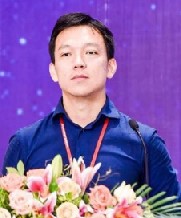Keynote Speaker

Dr. Rongrong Ji, Professor
School of Information, Xiamen University, ChinaSpeech Title: Compact Visual Representation – Effectiveness, Interpretability and Robustness
Abstract: This talk mainly introduces a few representative compact computer vision models for visual recognition and retrieval on massive datasets. It covers the main progress of Prof. Rongrong Ji’s research group on compact visual representation, feature interpretability, and robust visual analytics. For the issue of representation compactness, a ranking-sensitive hashing model will be introduced, which can effectively preserve the ranking information of data in the Hamming space by learning from large-scale unsupervised data pairs. For the interpretability issue, this talk will report recent developments of diverse feature learning, feature coupling & decoupling analysis, as well as the structural decomposition of neural networks. For the robustness issue, an in-depth investigation on the sensitivity of adversarial samples in visual retrieval tasks will be presented and discussed. Finally, this talk will highlight some typical industrial applications of the above research achievements in recent vision-related products of leading AI companies such as Huawei and Tencent.
Keywords: Compact Visual Representation; Robustness; Interpretability
Biography: In 2011, Rongrong Ji obtained his doctorate from professor Yao Hongxun in Harbin Institute of Technology. In 2010, he worked as a research assistant in academician Gao Wen laboratory of Peking University. From the end of 2010 to 2013, he worked as a postdoctoral researcher in Shih-Fu Chang laboratory of Columbia University. In 2013, he joined the department of intelligent science and technology, school of information science and technology, Xiamen University. He was appointed as a full professor at Xiamen University in 2014 and he has been Minjiang Scholar distinguished professor since 2015 at the same university.
His research falls in the field of computer vision, multimedia, and machine learning. His scholarly work mainly focuses on leveraging big data to build computer systems to understand visual scenes and human behaviors, inferring the semantics and retrieving instances for various emerging applications. His recent interests include compact visual descriptor, social media sentiment analysis, and holistic scene understanding. He has published over 70 papers in top journals and reputed conferences like PAMI, IJCV, TIP, CVPR, ICCV, IJCAI, AAAI and ACM Multimedia.
In the past decade, Prof. Ji and his collaborators have developed some of the state-of-the-art mobile visual search systems and social multimedia analytics tools, with top performances in the MPEG Compact Descriptor for Visual Search (CDVS) standard evaluations. His work has also been recognized by ACM Multimedia 2011 Best Paper Award, Microsoft Fellowship 2007, and Best Thesis Award of Harbin Institute of Technology. His research has been supported by government agencies like National Science Foundation of China. He has been awarded the National Science Foundation for Excellent Young Scholars (2014). In 2017, he was awarded the National Top Talent of Ten Thousand People Program.
He is associate editors in Neurocomputing, Multimedia Tools and Applications, The Visual Computer, PLOS ONE, Frontiers of Computer Science etc., guest editors in ACM Transactions on Intelligent Systems and Technology, IEEE Multimedia Magazine, Signal Processing, Neurocomputing etc., General Chair of VALSE (Vision And Learning SEminar) 2017, Local/Session/Area Chairs in IEEE MMSP 2015, ACM ICMR 2014, IEEE VCIP 2014, ACM MMM 2015, IEEE ISM 2015 etc. TPC Members in AAAI 2015, CVPR 2013, ICCV 2013, ACM Multimedia 2010-2015 etc. He has been a Senior Member of IEEE (2014-now), Senior Member of ACM (2015-now), Chair of VAIG Group for IEEE Multimedia Communication Technical Committee (MMTC) (2014-2016), Member of ACM, Chair of CCF YOCSEF Xiamen (2016-2017), and Executive Member of Fujian Association of Artificial Intelligence.
